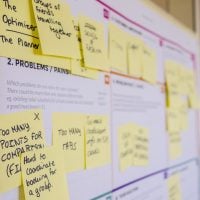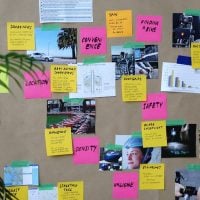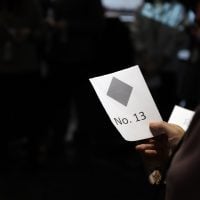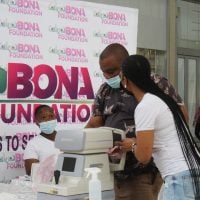Deadline: 9-Mar-23
The European Commission (EC) is seeking applications for the Exploitation and valorisation of results relevant for the ERA Policy Agenda.
Scope
- The ERA Policy Agenda, the 20 actions and their implementation will be supported with a range of actions under the different parts of the Horizon Europe Work Programme, and in particular, under the WIDERA work programme. Many of these actions will produce results that require a broad uptake by Member States, Associated Countries and their stakeholders. At the same time, important actions under Horizon Europe support the transformation and institutional change of universities, research organisations and enterprises. The action will implement a facility to disseminate results widely, facilitate their use, tailor them to the needs of the different communities and build a community of practitioners that support mutual learning and exchange of good practices in institutional change in the spirit of the New ERA. It will furthermore design measures for mutual learning among Member States and stakeholders, with a focus on those ERA Policy Agenda actions where no other configuration support this. It will provide expertise to countries participating in the implementation of an ERA Policy Agenda action to address bottlenecks and increase stakeholder engagement. It will contribute to the building of an ERA community, including, with regular events at European level, and support a coherent approach to communication activities and their branding at national level. This will also allow the consortium to provide recommendations on how the necessary institutional and structural changes can best be achieved, including identifying gaps in methodologies and tools that would help to address these.
-
The action consists of four parts, all of which should be addressed:
- Design and implement a dissemination and valorisation facility covering the relevant actions of the ERA Policy Agenda;
- Support the coordination, sharing of information, mutual learning and awareness raising, across Member States and stakeholders, with the help of meetings, workshops, working groups and other tools to exchange experience, identify, monitor and showcase case studies, including good practices and lessons learnt, with a focus on those ERA Policy Agenda actions where no other configuration support this;
- Community building, with regular events at European level, and support to coherent communication on ERA Policies, outcomes and results at national and European level;
- Design a process to develop and share guidance and recommendations for policy-makers and stakeholder organisations, across the European Union.
- In order to support the achievement of the ERA objectives across the EU, the consortium should demonstrate that it covers the Member States in a geographically comprehensive way, as well as the capacity to provide or access expertise related to all relevant ERA Policy Agenda actions. Proposals should describe how they intend to collaborate closely with the Commission services, and build on the ERA Policy Platform in order to avoid additional IT developments.
- The actions should envisage a duration appropriate to the ambition and complexity of the proposed topic, but not exceed 36 months.
Funding Information
-
The check will normally be done for the coordinator if the requested grant amount is equal to or greater than EUR 500 000, except for:
- public bodies (entities established as a public body under national law, including local, regional or national authorities) or international organisations; and
- cases where the individual requested grant amount is not more than EUR 60 000 (lowvalue grant)
Expected Outcome:
-
Projects are expected to contribute to the following expected outcomes:
- Boosting the dissemination, valorisation and broad uptake of results stemming from the different ERA Policy Agenda actions;
- Supporting mutual learning between Member States and stakeholders on their implementation of ERA Policy Agenda action;
- Building of an ERA community and branding at national and European level;
- Recommendations for policy-makers and stakeholders on how to best implement institutional changes related to ERA policies.
Eligibility Criteria
- Any legal entity, regardless of its place of establishment, including legal entities from nonassociated third countries or international organisations (including international European research organisations ) is eligible to participate (whether it is eligible for funding or not), provided that the conditions laid down in the Horizon Europe Regulation have been met, along with any other conditions laid down in the specific call topic.
- A ‘legal entity’ means any natural or legal person created and recognised as such under national law, EU law or international law, which has legal personality and which may, acting in its own name, exercise rights and be subject to obligations, or an entity without legal personality.
- Beneficiaries and affiliated entities must register in the Participant Register before submitting their application, in order to get a participant identification code (PIC) and be validated by the Central Validation Service before signing the grant agreement. For the validation, they will be asked to upload the necessary documents showing their legal status and origin during the grant preparation stage. A validated PIC is not a prerequisite for submitting an application.
-
Specific cases:
- Affiliated entities — Affiliated entities (i.e. entities with a legal or capital link to a beneficiary which participate in the action with similar rights and obligations to the beneficiaries, but which do not sign the grant agreement and therefore do not become beneficiaries themselves) are allowed, if they are eligible for participation and funding.
- Associated partners — Associated partners (i.e. entities which participate in the action without signing the grant agreement, and without the right to charge costs or claim contributions) are allowed, subject to any conditions regarding associated partners set out in the specific call conditions.
- Entities without legal personality — Entities which do not have legal personality under their national law may exceptionally participate, provided that their representatives have the capacity to undertake legal obligations on their behalf, and offer guarantees to protect the EU’s financial interests equivalent to those offered by legal persons.
- EU bodies — Legal entities created under EU law including decentralised agencies may be part of the consortium, unless provided for otherwise in their basic act.
For more information, visit European Commission.









































